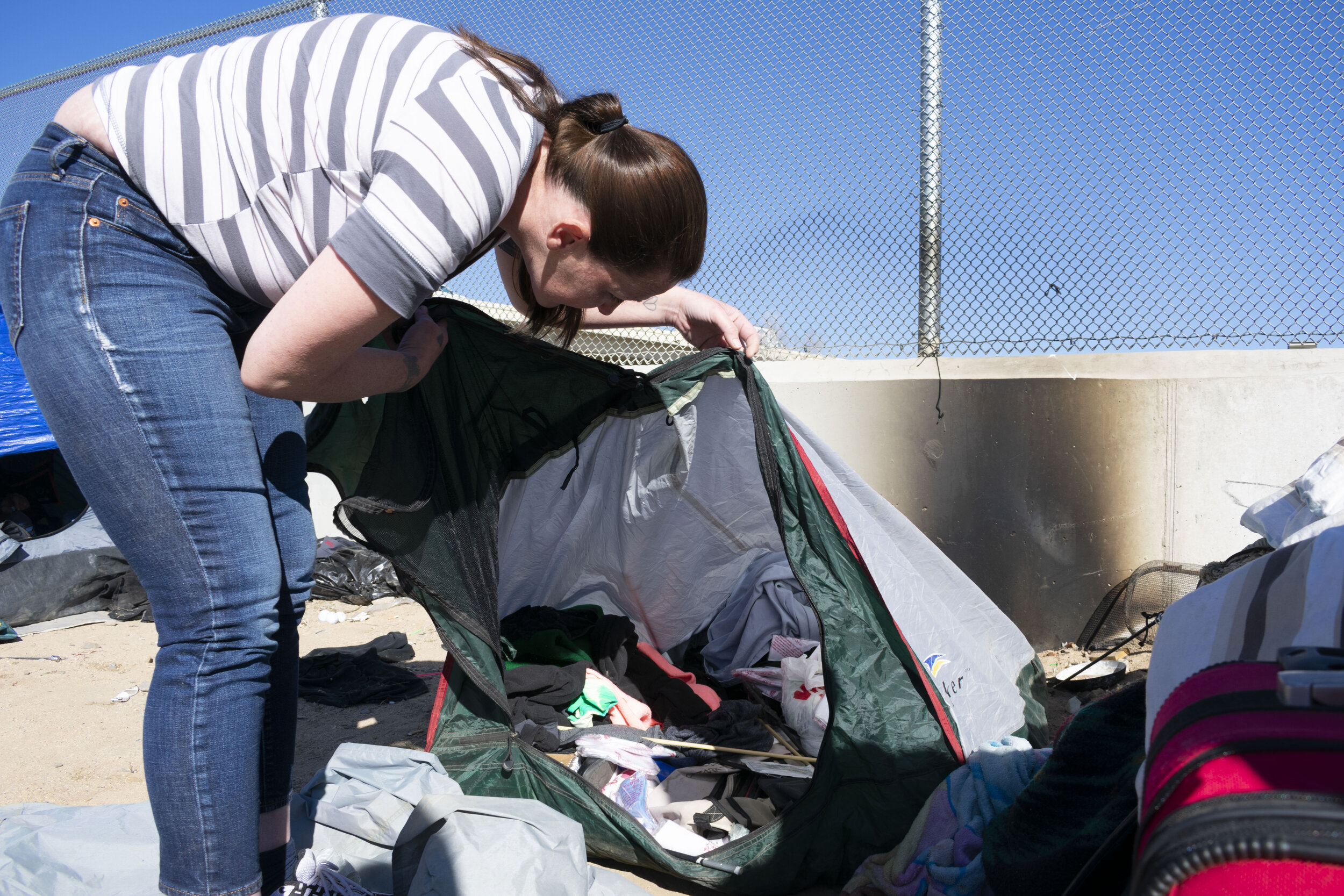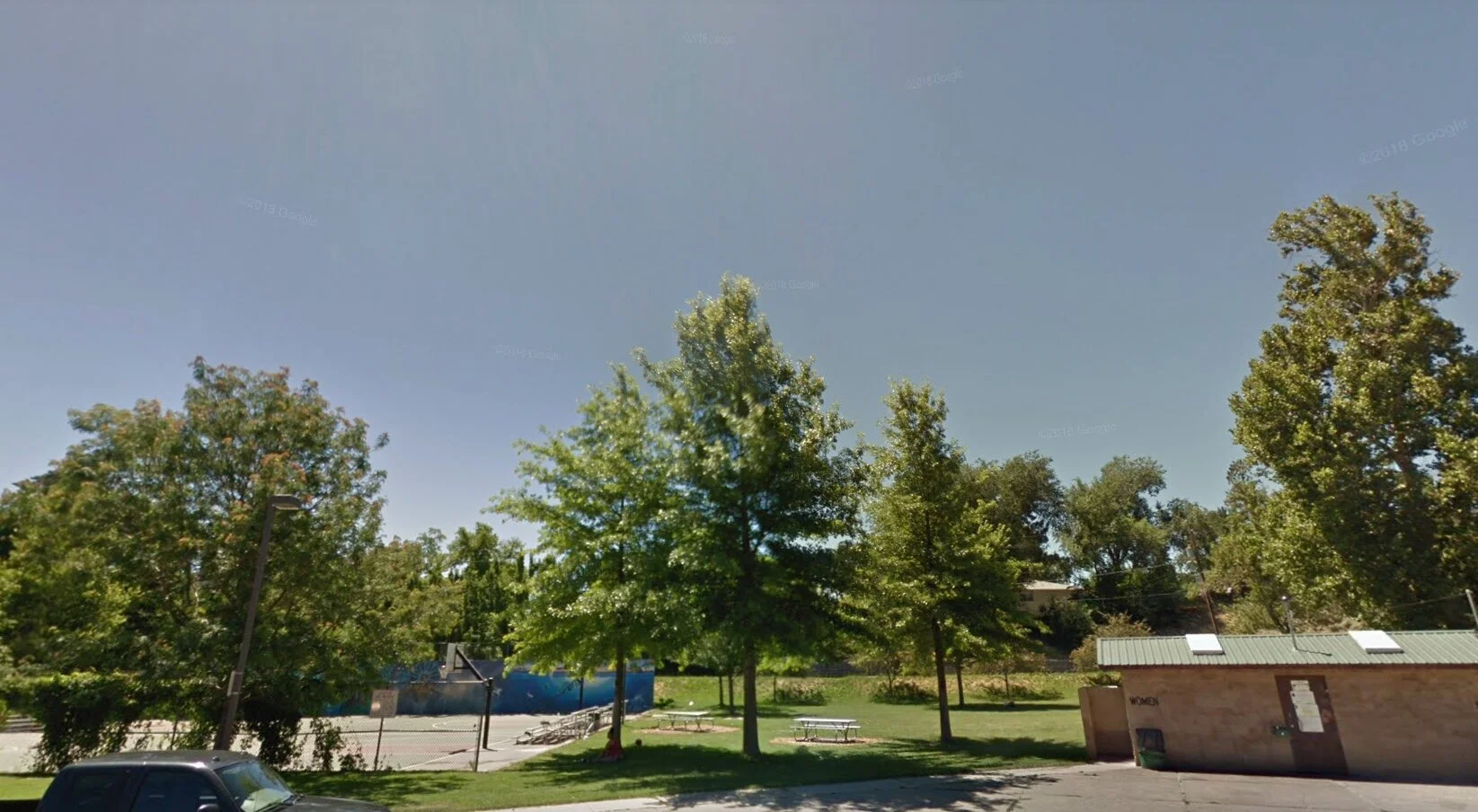Fearing a New Sweep and the Global Pandemic
Elizabeth, 35, is living in a tent, alongside dozens of others after a large sweep in Reno along railroad tracks sent houseless individuals to this new spot, tucked away under Wells Avenue.
This is her first time being homeless and she’s only been living on the streets for about a month. It couldn’t come at a worse time in terms of her health. She has Multiple Sclerosis, which weakens your immune system. This has heightened her concerns being exposed to coronavirus which can be deadly to those with weaker immune systems.
Medical experts say those living on the streets are among the most vulnerable to contract the virus, as they are often in close proximity to one another, while poor sleep and high stress weaken their immune systems even further, whatever their underlying medical conditions.
“People are dying out here,” Elizabeth said of the growing number of people in Reno camping outside, moving from place to place due to repeated displacements by cleanup crews.
Difficulty in Getting Basic Items
Grocery stores in Reno are being emptied of items such as soap, hand sanitizer and toilet paper, and for people living outside, it’s even been harder to get these items.
She said maybe people might realize what it is like to always be short on basic but necessary items.
“Be grateful for everything you have from toilet paper down to forks, things that you think are stupid, we cherish out here,” she said.
Elizabeth says she became homeless after her boyfriend went to jail for stealing cars. She used to be a Certified Nursing Assistant and a Licensed Practical Nurse, but said she was charged for a felony for having pain pills she wasn’t supposed to have.
While physical health care is important to her, she said what Reno really needs is better mental health care. “Honestly I didn't realize it till I got out here but a lot of them [live with] mental health,” Elizabeth said. “So we need more people to help with mental health.”
“This is the most humbling experience I've ever been through,” Elizabeth said. “When I walk down the street right now with some of my stuff, I get looked down upon as the cars are passing by like I'm trash, like I'm nothing.”
Needing More Help to Rebound and Hoping for a Tax Refund
Elizabeth said ReStart helped her get her ID, find food, clothing and helped her apply for disability. But that hasn’t been enough to get her off the streets for now, and that her neighbors in tents could also use help.
“I want to see a lot of these people get up off the street,” Elizabeth said. “I would like to see NAMS reach out and help these people. We need doctors to help more…. There's at least ten disabled veterans here. They fought for our country and they're out here homeless and that's not right.”
Still, the camaraderie among the encampment is something she says which keeps her going. “We stick together more than anybody else does,” Elizabeth said. “Even more than in your own family.”
Elizabeth said she can’t work because of her disability. But she remains hopeful that she will soon live independently and get off the streets within the next month with the help of her and her boyfriend’s tax return.

























![“I've never really been in this situation. I've never really been homeless [this is the] first time around. But if there was any place, if I had to, if I was forced into the circumstance to become homeless, I would say Reno's a safe bet,” Castillo s…](https://images.squarespace-cdn.com/content/v1/5675d221cbced60a236e28b8/1581359639384-0S385K2V4LJGFPTP8THT/Joseph+Castillo.jpg)











![“I noticed they have those Ambassadors out here,” Muhammad said. “[They] help people with directions and stuff but they also check on people and I think that's a pretty good thing.”](https://images.squarespace-cdn.com/content/v1/5675d221cbced60a236e28b8/1570216028678-72AR5JYFXEBSEDGM2U4N/IMG-1194.jpg)



![“People are so quick to judge that [houseless] people do it to themselves, they're alcoholics or drug addicts or whatever the case may be. But everybody has a story. I think that we need to learn everybody's story. We need to know what their story i…](https://images.squarespace-cdn.com/content/v1/5675d221cbced60a236e28b8/1580233801783-5720C7KNDJPO2WHHCIQC/IMG_0441.jpg)


![For the sixth time in two years, Daniel says he’s applying for a new identification card. “I don't know why just IDs [get stolen],” Daniel said during a recent Share Your Story time at the downtown library. “And that goes for birth certificates, Soc…](https://images.squarespace-cdn.com/content/v1/5675d221cbced60a236e28b8/1573925634812-SH1PL5NCQXDIPTVB2341/Daniel+Quote.png)














![Vinson acknowledges that a disparity exists between his previous home in California and his current apartment in Reno. “[Reno’s] treated me very well,” Vinson said. “I've had a lot more opportunity here than I ever did in California. It's funny beca…](https://images.squarespace-cdn.com/content/v1/5675d221cbced60a236e28b8/1574797390043-4FQPCVGXIBTG7HD2RMJ0/santarosa2.jpg)

